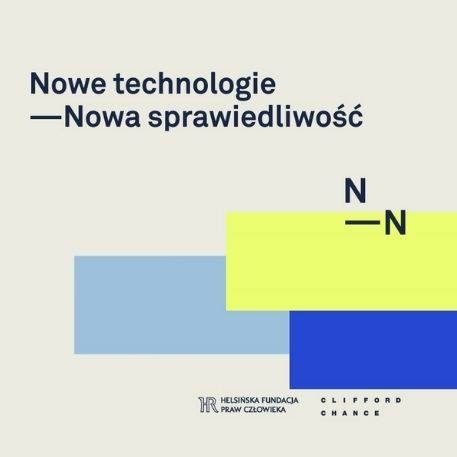
New Technologies – New Justice – New Questions: the latest report by the Helsinki Foundation and Clifford Chance
According to over 93% of the lawyers participating in a survey of the Helsinki Foundation for Human Rights, the Polish justice system does not make adequate use of new technology solutions, shows a report prepared by the HFHR in cooperation with Clifford Chance. At the same time, the vast majority of the respondents (96%), claim that the introduction of modern technology solutions could improve the functioning of the courts.
The survey revealed that the potential of innovative and digital solutions could lead, in particular, to speeding up proceedings, rationalising the use of time by adjudicating panels and courts’ clerical staff, simplifying the handling of cases, saving costs and streamlining judicial correspondence. Referring to the risks associated with the wider use of new technologies in justice, respondents primarily mentioned the insufficient security of IT systems, reduced accessibility of courts and problems associated with the effective participation in proceedings caused by the phenomenon of digital exclusion.
New technologies, old problems
The report, developed by the Helsinki Foundation for Human Rights as part of a project carried out with Clifford Chance focuses on the functioning of new technologies in the justice system. For legal practitioners, the choice of topic is quite obvious: our daily observations of justice systems in Poland (and other jurisdictions) have not only revealed significant problems in the way these systems work but also highlighted considerable delays in the adoption of new technologies by the courts. We then asked ourselves whether some of the limitations and shortcomings of the justice system might be reduced through the wider use of what is broadly understood as “new technologies”.
Are new technologies really new?
We looked for answers to this question in Poland and abroad because a technology considered “new” in one country may as well be already well-recognised and widely used by international courts or courts operating in other domestic jurisdictions. The report covers the legal systems of England and Wales, Czechia, Spain, Japan, the United States, Italy and the Netherlands. The information received from offices of Clifford Chance operating in these countries served as the starting point for comparative analysis.
The process of digitisation of the judiciary is relatively underdeveloped in most of the surveyed jurisdictions, although the Covid-19 pandemic forced the introduction of new technologies in justice on a wider scale, and especially remote hearings and trials. In the vast majority of the surveyed jurisdictions, it is possible to conduct e-trials through video conferencing. However, none of the surveyed jurisdictions operates fully-fledged “online courts” defined in the HFHR report.
The use of tools based on artificial intelligence is less widespread. As the survey shows, AI solutions appear in the judicial practice of most of the surveyed countries, are still usually at the stage of testing and pilot programmes – an example being a programme implemented in the Oost-Brabant regional court designed to help Dutch judges in deciding cases involving road traffic offences or the systems used to assess the risk of an offence being committed tested by law enforcement authorities, e.g., in Spain or England and Wales.
Between novelty and tradition – the role of international standards in assessing judicial reforms
By eliminating some existing practical barriers, the increasingly widespread use of modern technologies may have a positive impact on access to a court. On the other hand, the process may also entail risks that ultimately limit, rather than expand, individuals’ access to courts. This is particularly important in the case of persons who are “digitally excluded” due to, e.g., economic reasons or a lack of sufficient computer skills. As shown by the case law of the ECtHR, a cautious approach should be taken, for example, to the holding of remote criminal trials or hearings dedicated to decisions concerning different forms of deprivation of liberty which may be ordered in the context of other types of proceedings. Wider digitisation could be allowed in minor civil or administrative cases.
The inevitability of the new
In today’s report New Technologies – New Justice – New Questions. Implementation of New Technologies in Justice, we argue that digital innovations should not be shunned upon. The findings of the report also allow us to conclude that the introduction of technological advances in the courts is possible without jeopardising the essence of justice – fairness and equity.
However, let us not forget that new technologies should be applied with the full awareness of their advantages and disadvantages and that the latter should be corrected flexibly.
The report was prepared as part of New Technologies – New Justice a joint project of the Helsinki Foundation for Human Rights and Clifford Chance. To find out more about the next outcomes of our work, please go here.
Download:


26.07.2021
 Cookies EN
Cookies EN